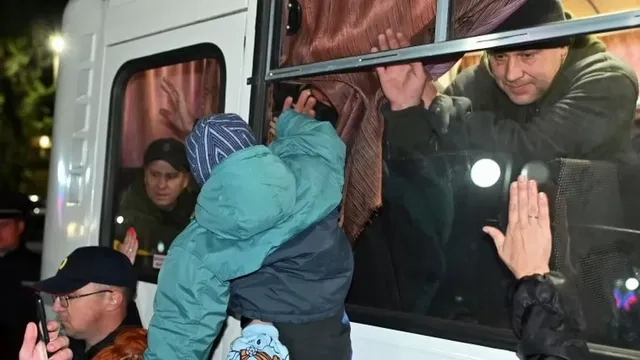Ukraine war: Russia admits mobilisation errors, amid growing public opposition
The Kremlin has admitted mistakes were made in its drive to mobilise Russian army reservists to fight in Ukraine, amid growing public opposition.
"There are cases when the decree is violated," Russian President Vladimir Putin's spokesman said, adding that "all the errors will be corrected".
Multiple reports say people with no military experience - or who are too old or disabled - are being called up.
Last week's mobilisation decree has already triggered widespread protests.
President Putin announced what he described as partial mobilisation on 21 September, with Defence Minister Sergei Shoigu later saying 300,000 reservists would be called up.
However, reports in opposition Russian media suggested that up to one million people could be called up, pointing out that one paragraph believed to be about the exact number of the required reservists was omitted (classified) in the published version of Mr Putin's decree on the official Kremlin website.
A number of military experts in the West and Ukraine say Mr Putin's decision to call up reservists shows that Russian troops are failing badly on the battlefield in Ukraine - more than seven months after Moscow launched its invasion.
Since the mobilisation announcement, more than 2,000 people have been detained at protests across Russia.
Hundreds arrested as Russian draft protests continue
Russia reveals exemptions as men flee call-up
What does Russian military call-up mean for Ukraine?
At a briefing on Monday, Mr Putin's spokesman, Dmitry Peskov, conceded that mistakes were being made.
He said that in some regions, "governors are actively working to rectify the situation".
Mr Peskov also said he was unaware of any decisions to shut Russia's borders and impose martial law in the country.
Media reports earlier suggested this could be done to stop potential recruits escaping abroad.
Since the mobilisation was announced, many young Russians have been seeking to leave the country.
Satellite images show lengthy queues of Russian cars on the border with Georgia.
